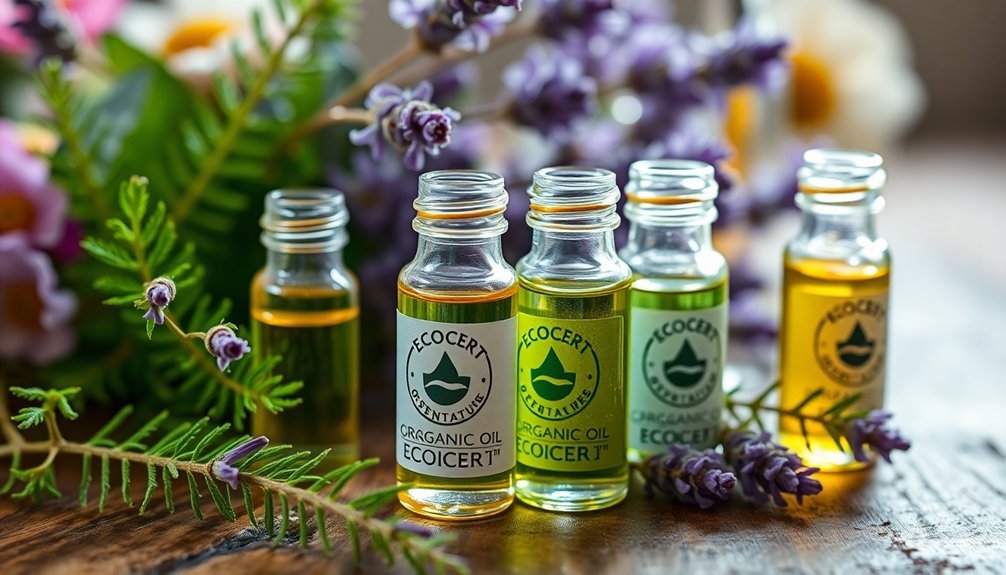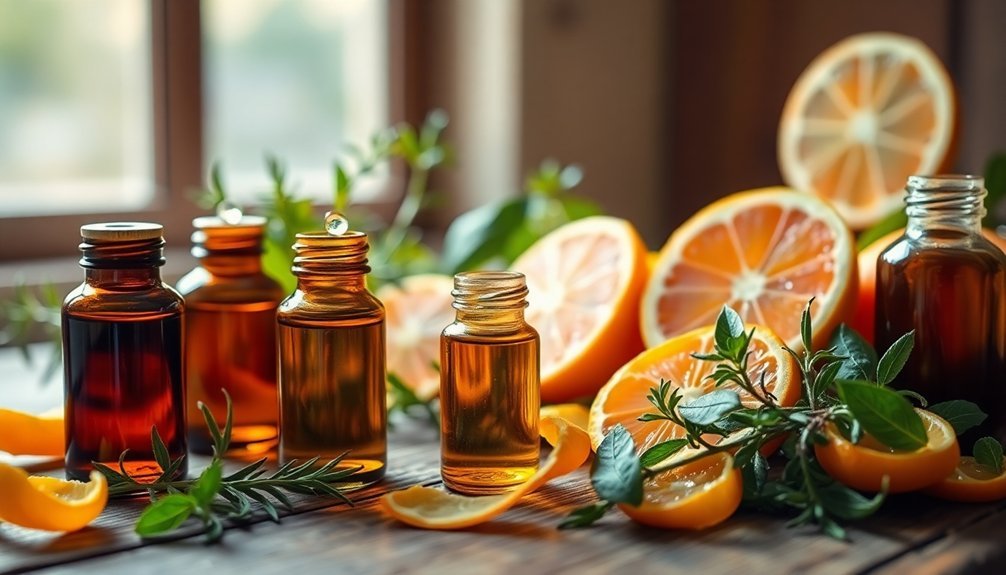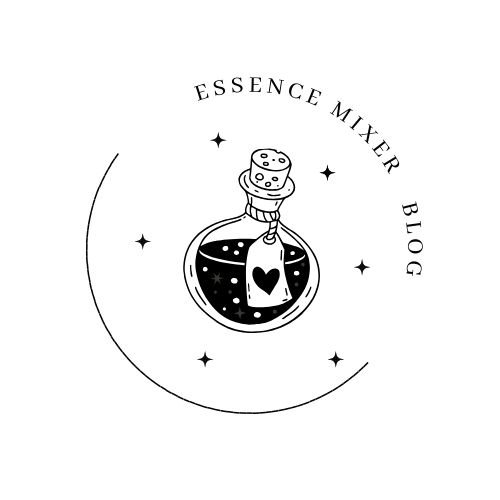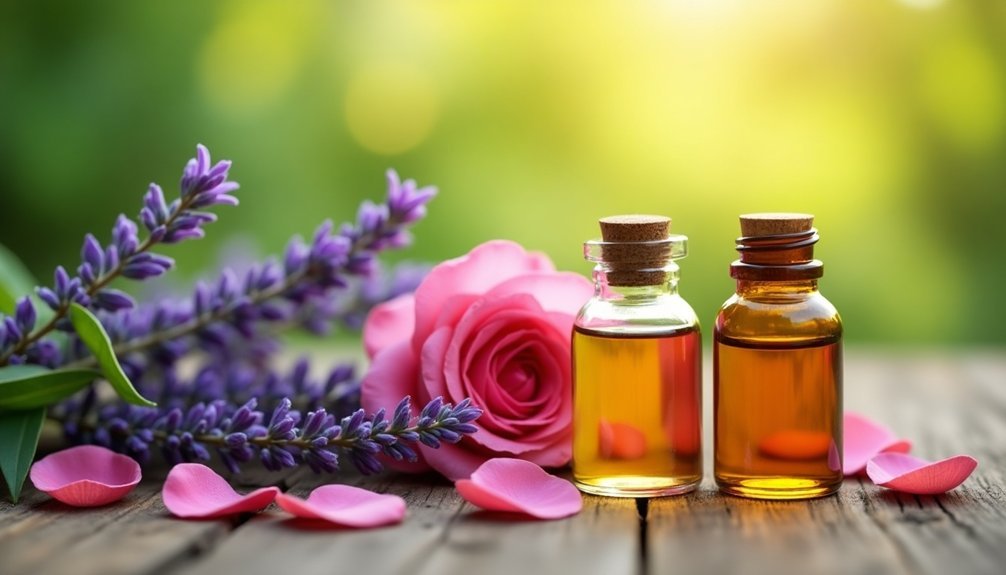Five safe preservatives for your organic perfumes include ECOCERT-certified Geogard ECT, naturally antimicrobial tea tree oil, potent clove oil with eugenol, antifungal oregano oil, and thyme oil with broad-spectrum protection. You'll want to combine these preservatives at pH levels around 5.4 for maximum effectiveness in your water-based formulations. Proper preservation guarantees your natural fragrances stay fresh and contamination-free. Discover how these preservatives work together to create the perfect natural protection system.
Understanding Natural Preservative Systems for Perfumes

Why are natural preservatives becoming increasingly essential in organic perfumery? As consumers demand cleaner ingredients, you'll find that natural preservatives offer effective protection while maintaining your perfume's organic integrity.
Water-based perfumes require antimicrobial preservatives to prevent bacterial growth and ensure product safety.
Systems like Naticide, with its pleasant almond notes, serve dual purposes as both preservative and fragrance component.
You'll want to evaluate combinations of natural preservatives for broad-spectrum protection. Options like sodium benzoate paired with Lactobacillus Ferment or citric acid can effectively guard your perfume against various microorganisms.
When formulating, pay attention to your product's pH level – aim for around 5.4 to maximize preservative effectiveness.
Remember that even natural preservatives must meet strict safety standards and be listed in the EEC Cosmetic Derivative's Annex VI. While they're natural, always test for potential allergic reactions before full application.
Essential Oils With Preservative Properties
Nature's preservatives lie within essential oils, offering both antimicrobial protection and aromatic benefits for organic perfumes. When you're formulating natural fragrances, consider incorporating clove, oregano, thyme, or tea tree oils for their powerful preservative properties.
These oils work by disrupting microbial cell membranes and interfering with bacterial metabolism. Advanced nanocarrier delivery systems can help stabilize these essential oils and enhance their preservative effects.
Here's how essential oils protect your perfume creations:
- Clove oil's high eugenol content fights a broad spectrum of microorganisms.
- Oregano oil's carvacrol compound provides antifungal protection even at low concentrations.
- Thyme oil effectively combats both gram-negative and gram-positive bacteria.
- Tea tree oil's terpinen-4-ol offers extensive antimicrobial coverage.
You'll get the best results by combining multiple essential oils, as they work synergistically to enhance both preservation and fragrance complexity.
ECOCERT-Certified Options for Perfume Preservation

When formulating organic perfumes, ECOCERT-certified preservatives offer reliable protection while maintaining your commitment to natural ingredients.
You'll find several effective options, including Geogard ECT, which combines benzyl alcohol, salicylic acid, glycerin, and sorbic acid for broad-spectrum protection.
OptiphenTM BSB-N and OptiphenTM BSB-W are nature-identical preservatives you can trust for your formulations.
They're particularly effective against various microorganisms and work well in both oil-in-water and water-in-oil emulsions. For ideal results, you'll want to use these preservatives at concentrations between 0.3-1.0%.
These preservatives aren't just safe; they meet strict COSMOS standards, ensuring your perfumes contain up to 99% natural-origin ingredients.
They're also globally accepted and provide excellent protection while maintaining low odor profiles that won't interfere with your fragrances. The certification process through ECOCERT's global network ensures consistent quality standards across more than 130 countries.
Optimal Ph Levels and Preservative Effectiveness
Understanding pH levels plays an essential role in preservative effectiveness for organic perfumes. You'll want to maintain a pH close to neutral (around 7) to guarantee your perfume remains stable and performs at its best.
Your skin's natural pH, which ranges from 4.5 to 5.5, directly affects how well the fragrance adheres and lasts.
To maximize preservative effectiveness, focus on these key aspects:
- Monitor your perfume's pH regularly using a glass electrode meter for accuracy.
- Use buffering solutions like sodium carbonate when needed to stabilize acidic formulations.
- Adjust preservative concentrations based on your skin's pH level (oily or dry).
- Store your perfume at controlled temperatures, as heat and humidity can alter pH balance.
Remember that low pH levels can accelerate unwanted chemical reactions, while maintaining neutral pH helps preserve your organic perfume's integrity.
Combining Natural Preservatives for Maximum Protection

By combining different natural preservatives in your organic perfume formulation, you'll create a more robust defense against microbial contamination.
When you blend essential oils like tea tree and thyme with plant extracts such as rosemary, you're leveraging multiple mechanisms of action to protect your product.
You can enhance your preservative system's effectiveness through microencapsulation, which protects active compounds and guarantees controlled release.
Consider incorporating herbs like cinnamon and clove, which contain potent phytochemicals that work synergistically to disrupt microbial cell membranes and inhibit enzyme activity.
You'll want to test these combinations for compatibility and stability to ascertain they maintain their effectiveness over time.
This approach not only provides broader spectrum protection but also aligns with organic standards while minimizing potential skin sensitivities.
Frequently Asked Questions
Can I Use Vitamin E as the Only Preservative in My Perfume?
No, you can't use vitamin E as your only preservative. It's an antioxidant that prevents oils from going rancid, but it won't protect against microbial growth. You'll need proper antimicrobial preservatives.
How Long Do Natural Preservatives Extend the Shelf Life of Perfumes?
Natural preservatives can extend your perfume's shelf life by 1-3 years, but you'll need to store it properly. They're not as effective as synthetic options, so you'll notice gradual changes in scent over time.
Do Natural Preservatives Affect the Scent Profile of Organic Perfumes?
Yes, natural preservatives can affect your perfume's scent profile through chemical interactions with fragrance components. You'll notice some preservatives may alter essential oils, but products like OptiphenTM BSB-W are designed to minimize these changes.
Are There Any Skin Reactions Specific to Natural Perfume Preservatives?
You can experience allergic or irritant contact dermatitis from natural perfume preservatives. You'll notice symptoms like redness, itching, or swelling. Cross-reactions may occur if you're sensitive to similar preservative compounds.
Can I Mix Different Natural Preservative Systems Without Compromising Their Effectiveness?
You can mix natural preservative systems, but you'll need to carefully test combinations for compatibility and effectiveness. Start with small batches to guarantee the preservatives don't counteract each other or cause instability.
In Summary
You've now learned several safe options for preserving your organic perfumes naturally. Whether you're choosing essential oils, ECOCERT-certified preservatives, or a combination of both, remember to test your pH levels regularly and monitor your formulations. By understanding how these natural preservation systems work together, you'll create longer-lasting, safer fragrances that stay true to your organic standards without compromising on stability or shelf life.





Leave a Reply